General
Tributes to the Late Prof. Johnson Opio Acon
Published
6 years agoon
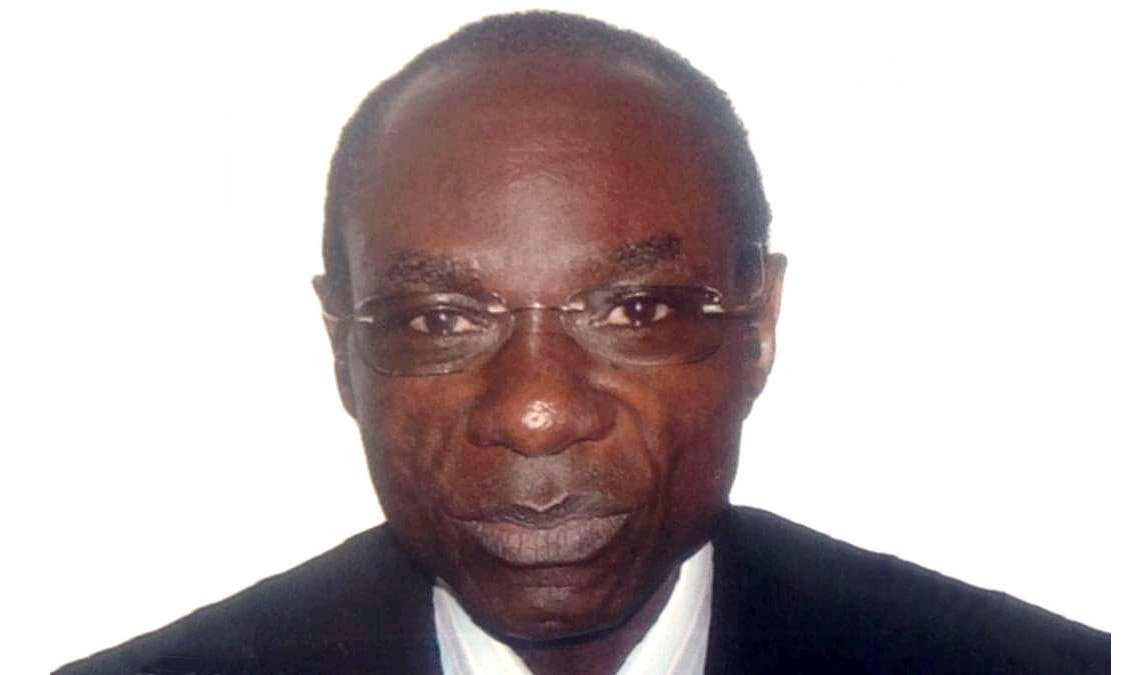
On 15th January 2020, the Makerere University community awoke to the sad news of the passing on of Senior Prof.essor Johnson Opio Acon, which occurred in the early morning hours at Kampala Independent Hospital. He was a Prof.essor in the Department of Veterinary Pharmacy, Clinical and Comparative Medicine, College of Veterinary Medicine, Animal Resources and Bio-security (CoVAB). Please see below for some tributes from colleagues.
“Sometimes I run out of hope. Prof. Acon’s demise is a tragedy. I mourn him greatly. Prof. Acon has been a person who combined incredible achievement with great personal grace. Prof. Nasinyama once intimated to me that Prof. Acon was the greatest philanthropist to many of his students.
He was elegant in every way, the way he spoke with a soft Edinburgh accent, the way he dressed, his immense courtesy and concern for others. I can dare say, in all ways, Prof. Acon had style! He was smart in dressing and intellect; he was simply incomparable. From 1996 – 2005, I did not need to go to car vendors to know the trending vehicle in town because I could easy know that from Prof. Acon's latest car. For the two decades I interacted with Prof. Acon, I got testimonies to the effect that he had immense positive impact of the current and next generation of Veterinary Medics. I observed salient attributes befitting of a distinguished academic especially that he epitomized quality, ethics, standards and professionalism in all forms and manner. He leaves an indelible mark on the graduate research training function at Makerere. He truly symbolized a well cultured Professor in an African premier University i.e. of great scientific repute and champion of evidence use as a driver of change. I found him an amiable man with commitment to transform graduate training at Makerere.
During the 90s and early 2000s, when he was still an active member of Senate, Prof. Acon was always picked by the Chair and listened to by all not only for what he said, which always moved our thinking, but also for the way he said it; quietly, utterly without bombast, but with immense authority. He always made valuable contributions; never backed down from a good argument or passionate exchange. He always had a recommendation of something. He believed in the power of ideas, and in the power of sharing those ideas. His eloquence, well contextualized arguments, vigilant choice of words earned him respect among Senators.
There are generations of scientists at Makerere and globally, particularly in veterinary medicine who owe their academic success to Prof. Acon. Recently, much of his endeavor was focused on research for society, where he facilitated at many of the regional symposium.
Like many distinguished African elites of his time, Prof. Acon paid allegiance to Makerere University, promoted professionalism and integrity, but most importantly, he promoted good research practice. Prof. Acon had a big heart, a hearty laugh and dazzling intellect that he used to encourage rather than intimidate. He will be sadly missed by DRGT and all who knew him, both for his presence and for his contributions to Makerere’s intellectual development. We shall miss my friend Prof. Acon, with his wisdom, his humor and his generosity.
May his soul rest in peace. (Psalm 23 & 121)”
Professor Buyinza Mukadasi, Director, Directorate of Research and Graduate Training (DRGT)
“May The Good Lord Grant him eternal Peace and comfort his family. Very sad indeed.”
Prof. Denis K. Byarugaba, College of Veterinary Medicine, Animal Resources and Bio-Security (CoVAB)
“Oh sincerely sorry. May his soul rest in eternal peace.”
Dr. Isaac Mugume, College of Agricultural and Environmental Sciences (CAES)
“This is indeed a tragedy. May God have mercy and grant all family and friends peace, comfort and strength in the midst of this storm.”
Dr. Jessica Aguti, College of Education and External Studies (CEES)
“Very sad indeed. May the Lord comfort the family and friends.”
Betty Akoli, Department of the Academic Registrar
“This is very sad news. Professor Johnson Opio Acon is one of those people that made one admire his profession. He treated animals and people well. He has contributed greatly to the brand of Makerere University. On a personal level, I first met him in 1989. Back then, Veterinary Medicine was running an ambulatory clinic that I happily joined each time Dr. Seguya, Dr. Biryomumaso, the Late Frank and others run. We shall miss him dearly.”
Prof. Noble Banadda, College of Agricultural and Environmental Sciences (CAES)
“It's indeed a very sad day for the Veterinary profession, CoVAB and Makerere University. Prof. Acon has been an icon of the veterinary profession with very rare attributes of commitment, time keeping and professionalism that endeared him to his students, patients and clients.
May God strengthen and uphold his family through this dark season. The Veterinary Fraternity will miss him dearly. May his soul rest in eternal peace.”
Dr. Sylvia Angubua Baluka, President Uganda Veterinary Association President, College of Veterinary Medicine, Animal Resources and Bio-Security (CoVAB)
“Very shocking news indeed. May his soul rest in eternal peace. Amen.”
Dr. Okwi Andrew Livex, College of Health Sciences (CHS)
“So sad. May his soul rest in peace.”
Prof. Felix Bareeba, College of Agricultural and Environmental Sciences (CAES)
“It is indeed sad to have lost our senior colleague in the Veterinary profession. Our sincere prayers to the family upon this loss. May his soul rest in eternal peace. Amen.”
Dr. Fredrick Muyodi, College of Natural Sciences (CoNAS)
“Prof. Acon will forever be missed by CoVAB, Makerere University community, Local and International Veterinary community, Academia and most of all, his family. My sincere condolences to all.”
Prof. George W. Lubega, College of Veterinary Medicine, Animal Resources and Bio-Security (CoVAB)
You may like
General
Makerere Students share experiences, connections and inspiration at inaugural For Youth, By Youth Conference in Turkey
Published
10 hours agoon
November 25, 2025By
Mak Editor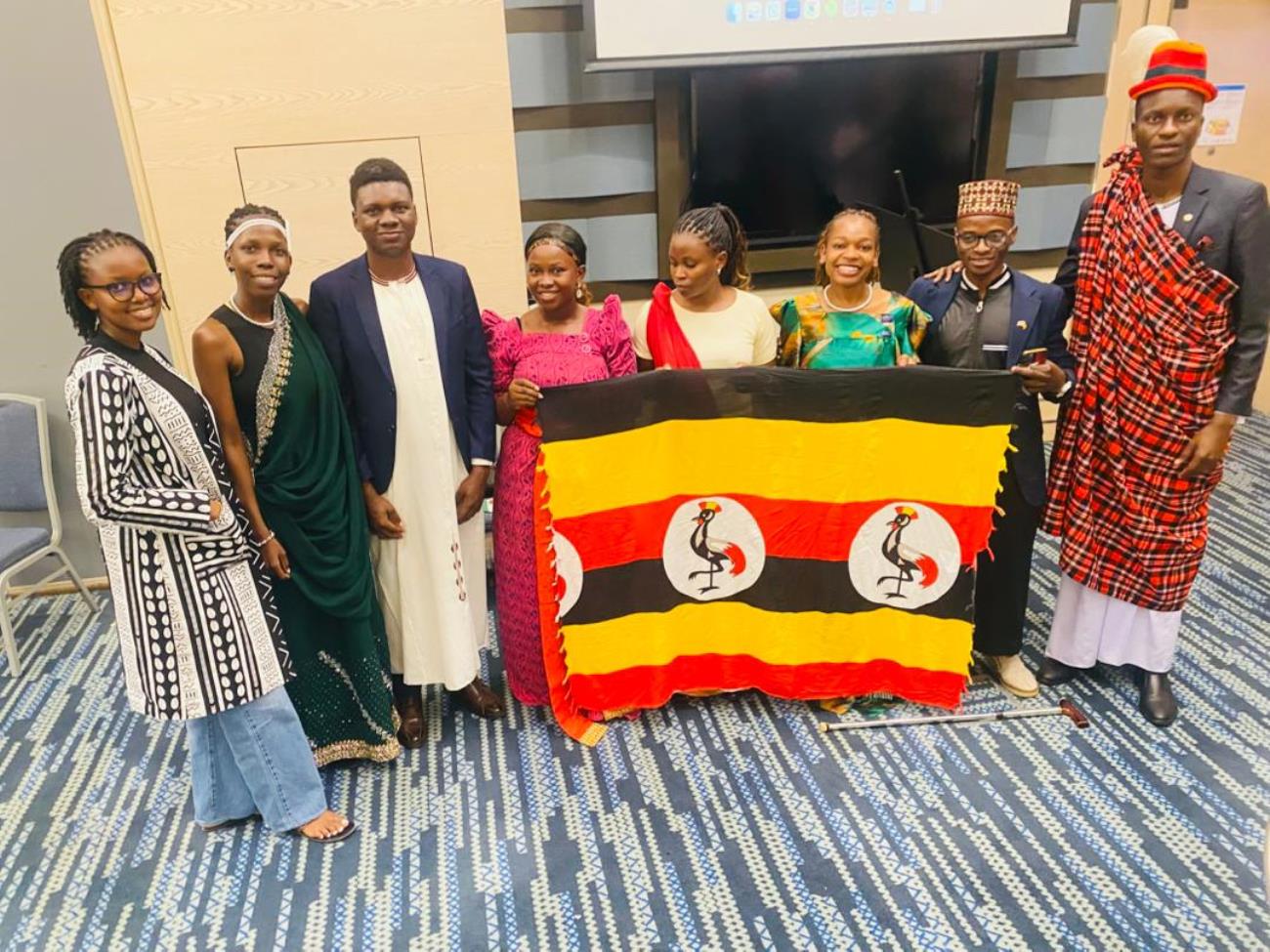
On 16 November 2025, six students from Makerere University travelled to Turkey to join 69 peers from other prestigious universities for the inaugural For Youth, By Youth Conference on Conscious Leadership and Global Solidarity. The two-day conference was organised by the Talloires Network of Engaged Universities, in collaboration with paNhari and Sabancı University, and supported by the Mastercard Foundation.

During the Conference, held between 17 and 18 November, students participated in a variety of activities, including panel discussions, presentations, and the drafting of the For Youth, By Youth Movement Charter and the Talloires Declaration, the first of its kind to be drafted entirely by students. For many of the students, this experience was the beginning of their journey of global impact and a rare platform to openly share their experiences, ideas and aspirations.
Student reflections after the conference
Naomi Ayebale, a Master of Science in Clinical Psychology student at Makerere University, who took part in the panel discussion “Struggles for Justice and Peace in Our World,” shared: “Attending this event felt like stepping into a space where every voice truly mattered. It was a reminder that no single, beautifully crafted story can ever capture what all our stories hold when woven together. Everyone came with their own truth, their own lens, and their own hope, and somehow it all fit.
“Being part of this movement fills me with a sense of joy, not just because of the cause itself, but because I get to stand alongside people who are not only demanding change but actively working to build it,” she said. “It’s energizing, but it also comes with a deep sense of responsibility. For me, being part of the For Youth, By Youth movement isn’t about how long I’ve lived; it’s about the experiences I carry and the problems I’ve witnessed firsthand. Those experiences have taught me not only what needs to change, but also how meaningful that change can be.”
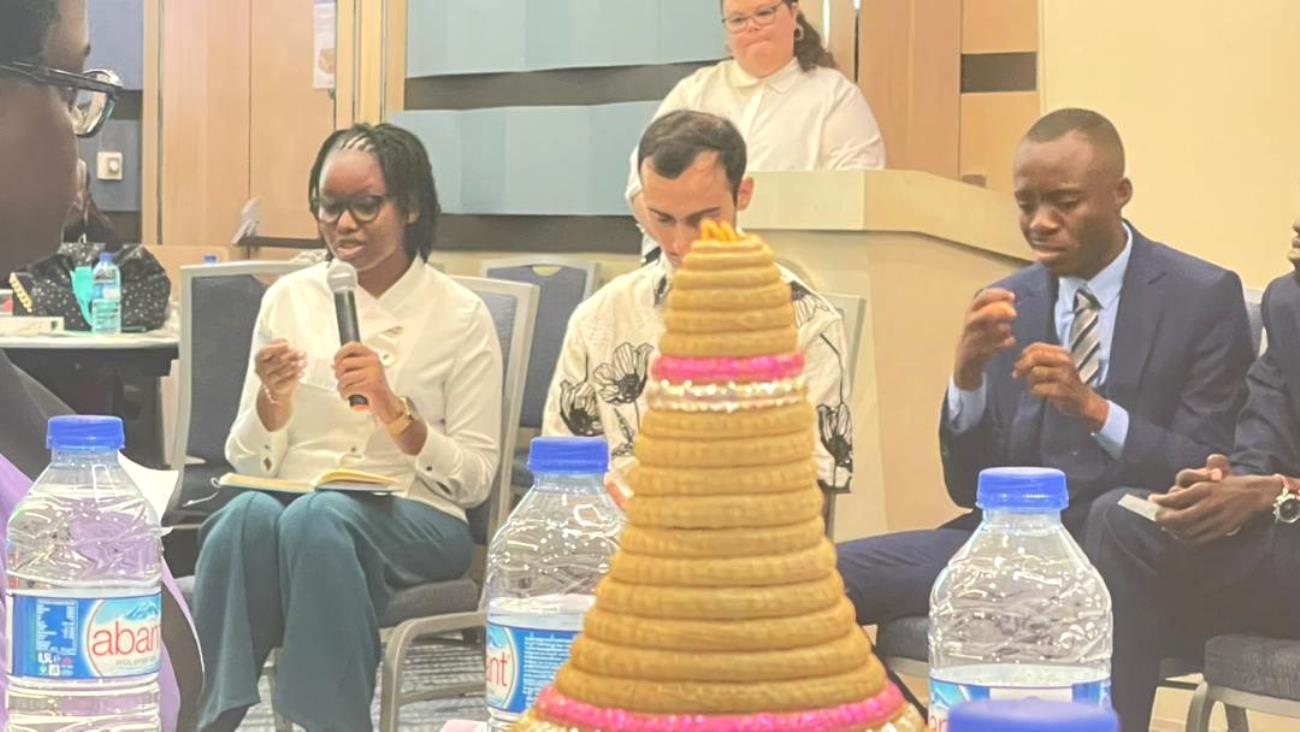
Tyobo Harriet Yake, a final-year student at Makerere University pursuing a BSc in Biomedical Engineering and one of the inaugural cohort participants of the For Youth, By Youth movement, remarked: “For me, it was amazing and exciting to meet young people from different countries who share similar beliefs and ambitions,’ she said. “Conversations like these created a safe space where victims of injustice could share their stories openly. It inspired me to return to my community and continue doing whatever I can, however small, to make life better for those facing similar circumstances.
“I felt a strong sense of unity, and the words of the famous song ‘Different colors, one people’ truly came to life. I loved trying foods I couldn’t even pronounce but absolutely enjoyed. It was a full package of rich experiences in just a few days” she added.
“As I move forward, I’m reminded of John F. Kennedy’s quote ‘leadership and learning are inseparable.’ A leader learns through listening to the loud and silent voices of the community. It’s this conscious leadership that sparks transformation and fuels collective growth. This is the leadership I embrace in this journey” Harriet concluded.
Sandrah Naikambo, a third-year student pursuing a Bachelor of Information Systems and Technology, shared her reflections:
“From my experience at the conference and the movement in general, I learned that change isn’t just spoken about—it’s built. I witnessed young people who weren’t waiting for permission but using their own lived experiences to create real solutions. In that space, every voice mattered and every story had room to breathe. I walked away feeling seen, inspired, and connected with a purpose bigger than myself. This experience showed me that the youth are not the future, they are the present!”
Namwase Rinah Marion, a final year student at Makerere University pursuing a Bachelor of Social Work and Social Administration, and a former Guild Minister for Students with Disabilities in the 89th Guild remarked:
“It was exciting to meet young leaders from across the world who had ambitions towards change in their respective communities and universities,” she said. “The international conference did not only expose me to fellow determined leaders but also inspired me to push hard for success as I got to know there is nothing without us. We are the leaders of tomorrow, and the program entrusted us; so, we are the change makers of today and tomorrow. Young leaders for a better world.”
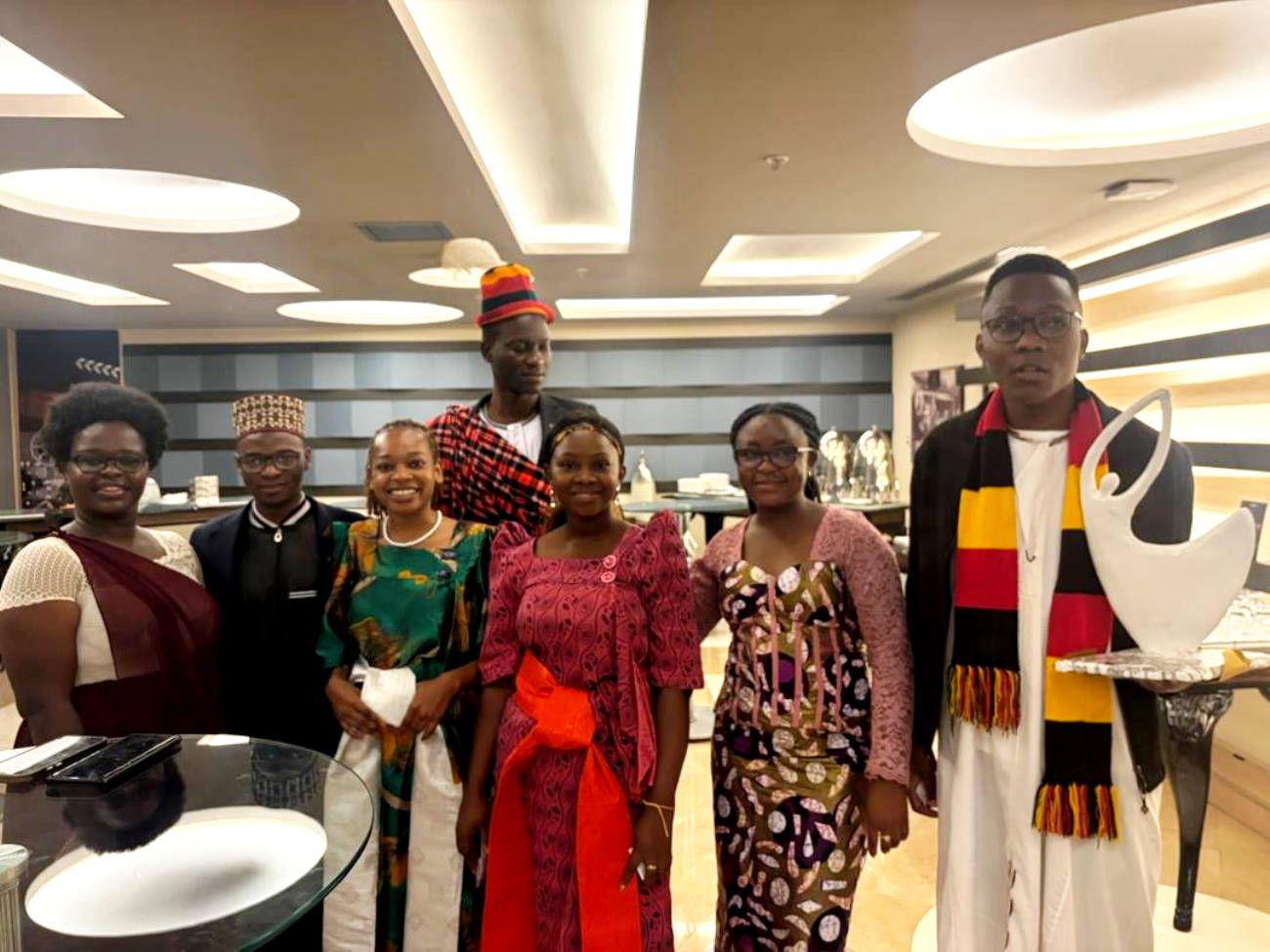
The For Youth, By Youth movement was born from the vision of 36 Next Generation Leaders from 18 countries, including Makerere’s Harunah Damba and Patrovas Okidi, who, at the height of the COVID-19 pandemic, worked together to stitch the threads that would later give rise to the movement. They organized local community and campus events, engaging directly with young people, communities, and universities to identify the issues that mattered most to them.
In recognition of the university’s support and as a gesture to strengthen ties with university leadership, Harunah and Patrovas presented a plaque to Vice Chancellor Professor Barnabas Nawangwe, honouring Makerere University’s support for the Next Generation Leaders Program in December 2023.
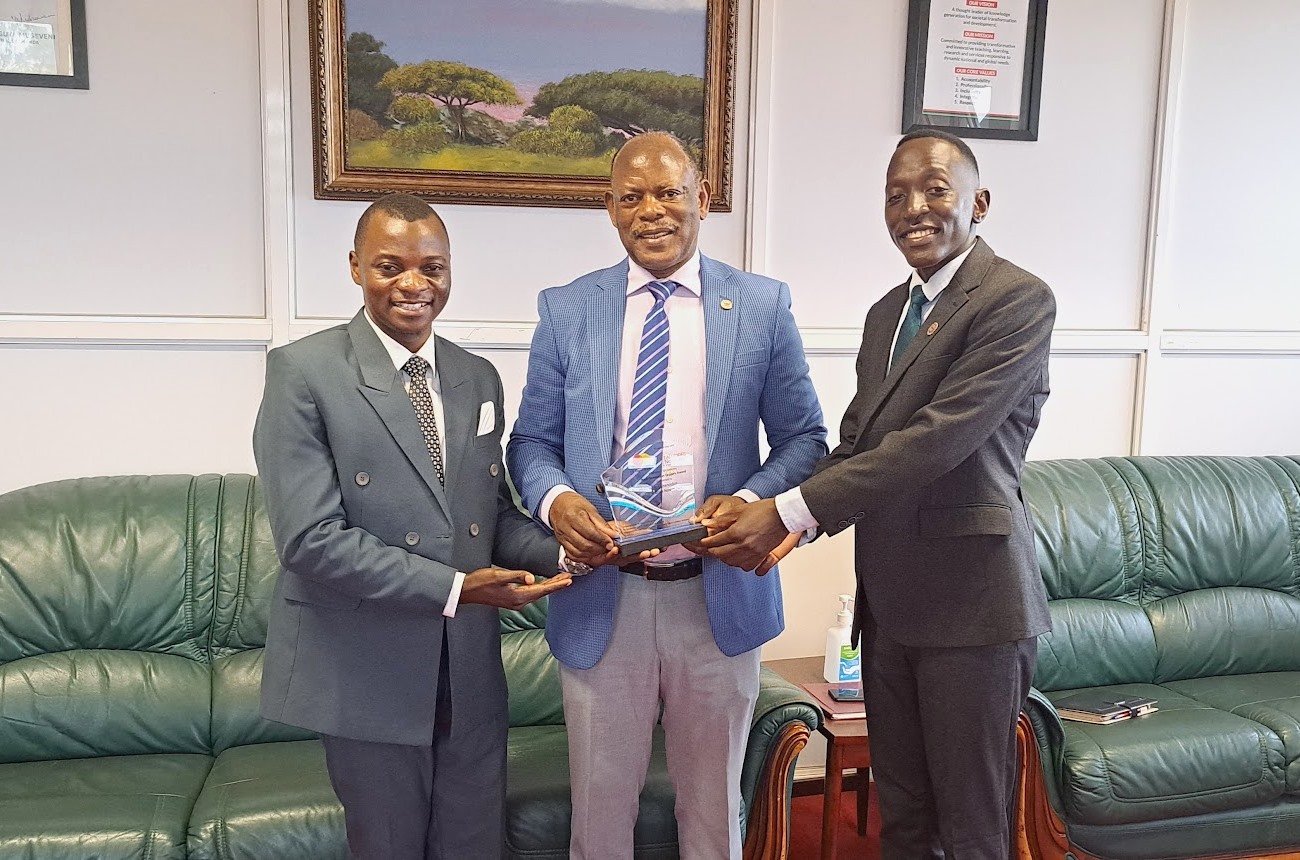
Reflecting on their experience, Harunah, now a Makerere University alumnus, said: “It was such an honour for me to be part of the inaugural For Youth, By Youth conference. Seeing the fruits of our hard work finally come to life is something that sits very close to my heart. I can’t think of any work that would be more rewarding, more encouraging, or more inspiring than this.”
Patrovas, a Master of Science in Bioinformatics student at Makerere University, said: “The For Youth, By Youth movement is a testament of what young people can do when organised, from its birth to the very first international conference, it has been led by youth and for the youth who are guided by values of respect, humility, kindness, impact, solidarity, hope, levity, collaboration, and inclusivity. The conference echoed one clear message I would love to pass on to everyone out there, our movement is a values-based civic infrastructure of engaged universities and a nimble network of virtual spaces. To solve multiple intersecting crises, education must evolve into regenerative, living systems rooted in community. Universities should represent all members of society, and be able to speak truth to power, and to centre empathy as the heart of learning and belonging. Youth must be co-creators in solving global challenges, while universities steward safe spaces for critical discourse and shared learning.”
He added “Echoing the voice of Lorlene Hoyt and others: For Youth, By Youth… it’s not a program — it’s a movement. Look out 2045, we’re just getting started. – this is our sense of belonging.”
General
In Honor of the Life and Legacy of Mr. Francis Seletze Ngabirano-A Steady Hand through the Storms
Published
12 hours agoon
November 25, 2025
When the history of public health training in Uganda is told — honestly, fully, and with the respect it deserves, the name Francis Seletze Ngabirano must stand at the center of that story. For 32 years, he was one of the most consistent figures at Makerere’s Department of Preventive Medicine, now the Institute (and later, School) of Public Health. Through leadership transitions, political upheavals, and moments when the institution teetered on collapse, he carried with him a quiet, steady force, one that helped keep the wheels turning and the vision alive.
Thirteen years after Makerere University was established, a boy was born in the rolling hills of Kigezi on 18 November 1935. His parents named him Francis Seletze Ngabirano. At that time, no one could have imagined that this young boy would one day dedicate his life to Uganda’s premier and oldest university. Guided by his parents’ commitment to discipline and service, Francis began school in 1945 at the age of ten. He completed his primary education in 1950 before proceeding to secondary school from 1951 to 1956.
By the late 1950s, long before the Makerere University Institute of Public Health was conceived, he was already doing the work that would define his life, administration in health settings. From Kilembe Mines Hospital, where he managed medical records and supervised clerical staff from 1957 to 1960, to the Ross Institute of Tropical Hygiene (East Africa Branch) from 1961 to 1963, where he served as Technical Assistant to the Principal Officer and helped set up regional health research operations across Kenya, Uganda, Tanzania, Malawi, and Zambia, his career was expanding beyond borders. Even as a young man, he had already become someone institutions could trust.
During this same period, he also served as Assistant Chief Health Educator with the African Medical and Research Foundation (AMREF), then a fast-growing regional health organization headquartered in Nairobi. His work took him directly into communities, organizing health education courses in schools and villages, gathering and analysing sickness data from local industries, and supervising the support staff who kept these outreach operations running. It was practical, people-focused work that demanded both empathy and discipline, qualities he carried throughout his career.
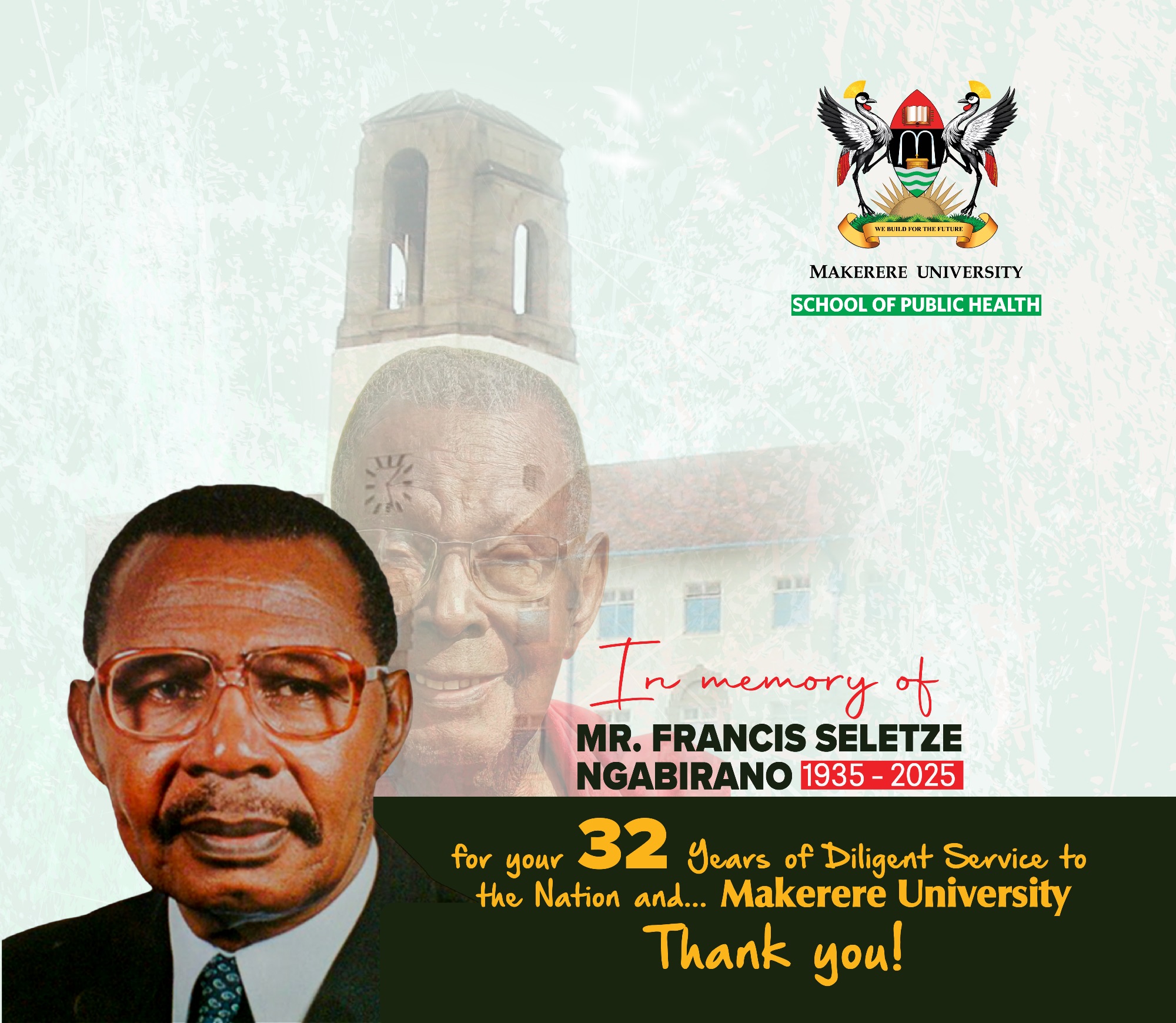
He strengthened his skills through further training in health education and public health administration at Kenyatta National Hospital, at the Hebrew University–Hadassah Medical School in Israel, and later at the University of Thessaloniki in Greece. These experiences gave him both global exposure and a strong command of public health systems, qualifications few Ugandans had at the time.
So, when he joined Makerere on 1 November 1968 as an Epidemiology Office Assistant, a role created specifically to accommodate his expertise, he arrived not as a beginner, but as a professional already shaped by years of responsibility.
As recorded in handwritten notes by Professor Suleiman Jabir Farsey on May 13, 1974:
“Mr. Ngabirano joined the Department in November 1968, and was appointed ‘Epidemiology Office Assistant.’ The records available in the Department indicate that Mr. Ngabirano was recruited for administrative duties, but because there was no provision in the establishment for such a post at the time, the post of Public Health Nursing Instructor was altered to one of Epidemiology Office Assistant,” wrote Professor Farsey, then Head of the Department of Preventive Medicine (1968–1975).
Becoming the Institutional Backbone
The early Institute of Public Health (IPH) was a small but ambitious unit within the Faculty of Medicine. It was led by Prof. Jabir Farsey as a Department of Preventive Medicine and supported by pioneering Ugandans such as Dr. Josephine Namboze, Dr. V. L. Ongom, Mr. S. K. Lwanga, Dr. M. L. Kakande, and Dr. B. Baitera. Behind this frontline of academics was a steady force, administrators like Mr. Ngabirano, making sure that teaching, research, and community outreach worked without disruption.
It is worth noting that Mr. Ngabirano witnessed the birth and transformation of the Department of Preventive Medicine into the first Institute of Public Health in Sub-Saharan Africa on 1 July 1975. The Institute was still under the Faculty of Medicine, then headed by Professor Joseph Lutwama, with Professor Jabir Farsey as its first head. Ngabirano also saw the construction of the four-story building that now houses MakSPH, completed in January 1971, along with the installation of furniture and essential facilities.
From his personal account, the idea of establishing an Institute had been conceived as early as 1967. However, the rise of Idi Amin delayed these plans and triggered the departure of remaining expatriates, including Dr. George Saxton, an American who had directed Kasangati Health Centre and taught in an honorary capacity in the Department of Preventive Medicine. Dr. Saxton, after a brief visit to Europe, returned with an aid package secured from the governments of Denmark and Norway, the funding that ultimately made the current MakSPH building possible. Saxton understood that creating an Institute required space, as staff and students had been cramped in the Clinical Research Building.
All these years, Ngabirano managed everything: financial records, planning epidemiological field tours, supervising personnel, coordinating WHO projects, handling stores and vehicles, and doing so with a thoroughness colleagues would later describe as his trademark.
Over the years, five heads of the Institute came and went: Prof. Jabir Farsey (1968-1975), Prof. Capt. Dr. Virginio Lachora Ongom (1975-1979), Prof. Josephine Namboze (1979-1988), Prof. John Tuhe Kakitahi (1988-1991), and Prof. Gilbert Bukenya (1991-1994), later replaced by Prof. Frederick Wabwire-Mangen (1995-2003). Directors changed, structures shifted, crises erupted… but Ngabirano remained.
His desk was where continuity lived.
A Witness and Chronicler of Turbulent Decades
Many people who lived through Uganda’s chaotic 1970s chose silence. But Mr. Ngabirano documented. His unpublished 1995 manuscript, The Institute of Public Health Through Idi Amin’s Rule, is one of the most significant historical accounts of Makerere’s public health training during a time when institutional memory was at risk of disappearing.
His writing describes:
The early Amin years saw a mass departure of academic staff. Prof. Farsey resigned in 1975, and Prof. Ongom died suddenly in 1979. Tragic losses of colleagues, Dr. Baitera, Dr. Kakande, and Mr. Asaba, further strained morale. Low salaries and dwindling staff eventually led to the discontinuation of the Diploma in Public Health in 1988.
These were not just institutional events; they shaped people’s lives. They tested loyalty, purpose, and endurance. Through all this, the Institute survived because of administrators who refused to let the vision fade. Few stood more firmly in that resolve than Mr. Ngabirano.
The Administrator Who Kept People First
His influence is most vividly remembered in the 1990s with the introduction of the two-year Master of Public Health (MPH) Degree Full-time Programme based on the concept of a Public Health Schools Without Walls (PHSWOW).
With support from the Rockefeller Foundation, this innovative model took training into district health systems; Rakai, Hoima, Fort Portal, Arua, Karamoja, Mukono, immersing students in real public health challenges. Administration for such a programme required: diplomacy, logistical mastery, pastoral care, financial stewardship, and calm leadership across diverse teams. Mr. Ngabirano excelled in every one.
Prof. Fred Wabwire-Mangen, then Director of IPH, remembers him as:
“A focused and organised administrator… the typical administrator of the olden days. He documented every detail clearly and ensured medical student fieldwork ran smoothly.”
Prof. Nazarius Mbona Tumwesigye, who joined when Ngabirano was already a pillar of the Institute, offers this reflection:
“He served the School diligently. The administrator was the engine of the Institute. Directors often travelled, but he ensured day-to-day affairs continued uninterrupted. He sustained this place when salaries were meagre and conditions extremely difficult.”
To young staff, he was not just a supervisor; he was guidance, stability, and care.
In 1993, a new graduate student, Professor Christopher Garimoi Orach, joined Makerere, encouraged by Prof. Gilbert Bukenya to pursue the Master of Medicine in Public Health (MMED PH). That programme would later evolve into the modern two-year MPH. One of the first people he encountered was Mr. Ngabirano.
Prof. Orach remembers him vividly and eulogises him:
“Francis Ngabirano worked with great dedication, commitment, and distinction at the Institute of Public Health. He was passionate about his work as an Administrator, humorous, smart, and ever-present. He interacted easily with faculty and students, always supportive. Rest thee well, Francis. You rendered your service admirably, with great love, passion, and honor. Rest now with the Creator, the giver and taker, in tranquility, in a place well prepared for you eternally.”
These words reflect the admiration of countless others whose paths he helped establish. To others, Ngabirano was a fatherly guide to future leaders. When Dr. Lynn Atuyambe arrived at the Institute in 1994, he was not yet the senior academic we know today but just a young researcher seeking footing.
He found in Ngabirano a mentor who understood people, not only processes.
“He participated in student welfare, was very kind and approachable. He allocated field vehicles, ensured our welfare, organised workshops, and kept strong links with our training centres. He had an art of storytelling with clarity and great detail, I will miss that.”
Dr. Atuyambe particularly remembers a life-changing personal moment:
“The first laptop in my life, he delivered it to me in the field and showed me how to use it. It was 1996. He was friendly and fatherly. May his soul rest in peace.”
These are not merely memories; they are bridges between generations. They tell the truth: the foundations of public health capacity building in Uganda were built not only by professors publishing papers but also by administrators who made classrooms, vehicles, housing, and field learning possible.
During the “MPH at 25” celebration on Oct. 16, 2019, he received a certificate from Vice Chancellor Prof. Barnabas Nawangwe recognizing his role in shaping 25 years of MPH training at Makerere University, an honour that followed his earlier Long Service Award from the University Council in 1995.
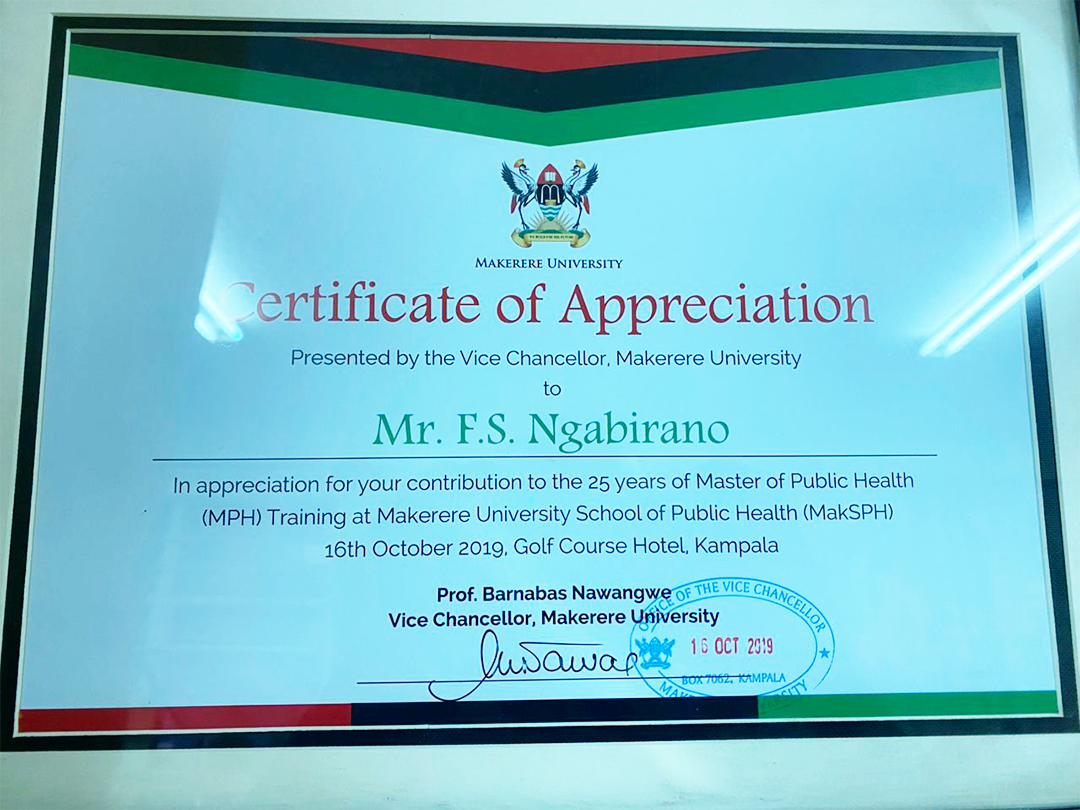
In 2024, Makerere University School of Public Health marked 70 years of existence. For almost half that history, 32 years, the institution was shaped, steadied, and propelled forward by Mr. Francis Ngabirano’s resolve.
Ngabirano’s legacy is woven into the School’s Story. He lived the mission before it became slogans; taking health training to communities, nurturing the next generation of public health leaders, staying when others left, building systems where none existed, documenting history so no one would forget. He is the man who didn’t seek applause. But his contribution is visible in every graduate who navigated the Schools without walls programme, in every field team he deployed safely, in every archived record that tells us where we started and how far we have come.
His retirement in the late 1990s closed an amazing chapter, yet he left behind structures still functioning, and people still carrying his values forward.
In institutions, some people shine in celebration. Others shine in crisis. Mr. Ngabirano shone in both and in his demise, the School of Public Health revere him as a gentleman who kept the School alive when it was hardest to stay.
He stood for diligence when resources were scarce, for continuity when the institution trembled, for service not as a role, but as a calling. We remember him not simply for what he did, but for who we became because he was here. He was the history-keeper, the stabiliser and the quiet guardian of a mission that outlived the hardest years.
And today, as we honor him, we also honor the courage it took to stay when leaving was easier.
To his family, his wife, Jane Ngabirano, and the children, Nina, Victoria, Justus, and Kenneth, thank you for sharing him with us. To his colleagues, thank you for walking the journey with him. To the generations he supported, your success is part of his legacy.
Mr. Francis Seletze Ngabirano’s life reminds us that greatness is not always loud. Sometimes, it is found in punctual footsteps, a carefully kept file, a well-organised field trip, a story told at just the right moment, and the choice, every morning, to keep serving.
May he rest in peace, knowing that his work mattered.
And may the institution he helped carry forward always carry his name in its story.
General
Illuminating Visionary Leadership: Introducing the Keynote Speaker for the 2025 Emmanuel Tumusime Mutebile Annual Public Lecture
Published
14 hours agoon
November 25, 2025
As Makerere University prepares to host the 2025 Emmanuel Tumusime Mutebile Annual Public Lecture, the selection of the keynote speaker stands as a deliberate and symbolic choice, one that reflects the very essence of this year’s theme: Shaping Africa’s Future: Intergenerational Leadership, Economic Resilience & the Power of Innovation.
The 2025 lecture will be delivered by Eng. Dr. Francis Frederick “Tusu” Tusubira, a visionary engineer, development thinker, and global servant-leader whose life’s work mirrors the values that Prof. Mutebile championed, disciplined leadership, ethical stewardship, and an unwavering commitment to building people-centred institutions.
Who is Eng. Dr. F. F. Tusu Tusubira?
Eng. Dr. Tusubira is a retired academic and accomplished professional with a distinguished career spanning engineering, leadership development, governance, and strategic transformation. He currently serves as the Managing Partner of Knowledge Consulting Ltd, where he supports organisations across Africa and beyond in strengthening leadership systems, enhancing institutional effectiveness, and navigating complex change environments.
His professional standing cuts across continents. He is a Registered Engineer in Uganda, a Chartered Engineer in the United Kingdom, and the current Patron of the Uganda Institution of Professional Engineers, a role through which he continues to mentor and shape the next generation of engineering professionals and national development leaders.
Beyond his technical expertise, Eng. Dr. Tusubira is widely recognised for his deep commitment to service, particularly through the global Rotary movement. A devoted Rotarian, he has served in multiple leadership capacities at national, regional, and international levels and is now a Rotary Foundation Trustee Elect (2026–2030), a position that underscores his global influence in advancing community development, ethical leadership, and youth empowerment.
Eng. Dr. F. F. Tusu Tusubira: A Speaker for This Moment
The choice of Eng. Dr. Tusubira, as the keynote speaker, is both strategic and symbolic. At a time when Africa faces critical leadership transitions, institutional fragility, and the urgent need for sustainable innovation, his life’s work offers real-world depth to the conversation. His career embodies a seamless fusion of intellect, service, and practice, positioning him uniquely to interrogate the future that Africa must shape.
Where Prof. Mutebile stabilised financial systems and safeguarded macroeconomic credibility, Eng. Dr. Tusubira has consistently focused on strengthening the human and institutional architecture that sustains those systems. His work in leadership development, strategic foresight, and organisational transformation speaks directly to the urgent call for systems that are resilient, adaptive, and ethically grounded.
For Uganda, Eng. Dr. Tusubira represents a generation of leaders who have transitioned from academia into national and regional influence while remaining deeply rooted in service and mentorship. His contribution to engineering education, governance reform, and institutional strengthening reflects a lifelong dedication to shaping a Uganda that is forward-looking, capable, and value-driven.
A Voice Aligned with the Theme
Eng. Dr. Tusubira’s keynote address will speak directly to the heart of the 2025 theme, exploring how Africa can intentionally cultivate leadership succession, fortify its economic systems, and harness innovation not as a buzzword, but as a strategic tool for inclusive development.
Through his lens, the lecture will challenge participants to rethink leadership as a collective responsibility, resilience as an institutional discipline, and innovation as a mindset rooted in purpose, ethics, and strategic foresight.
In choosing Eng. Dr. F. F. Tusu Tusubira, as the keynote speaker, Makerere University affirms its commitment to elevating voices that embody substance, service, and transformative leadership. His presence is not merely ceremonial; it is a reinforcement of the values that define this lecture series: excellence, integrity, and purposeful impact.
As the 2025 Emmanuel Tumusime Mutebile Annual Public Lecture approaches, his keynote address promises to be a defining moment, one that not only honours a legacy but ignites a renewed commitment to shaping Africa’s future with courage, clarity, and conviction.
The Tumusiime Mutebile Annual Public Lecture will also be hosted on live stream on the Makerere University YouTube page. Link: https://youtube.com/live/e6Ld-0XYLiw?feature=share
Caroline Kainomugisha is the Communications Officer, Advancement Office, Makerere University
Trending
-
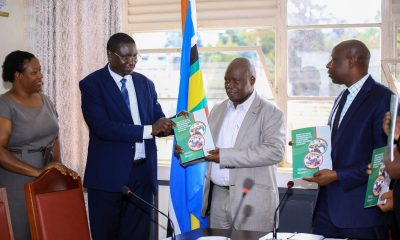
 Research2 weeks ago
Research2 weeks agoMakerere University and Ministry of Public Service Study Reveals Impact of Salary Enhancement on Teacher Performance in Uganda
-
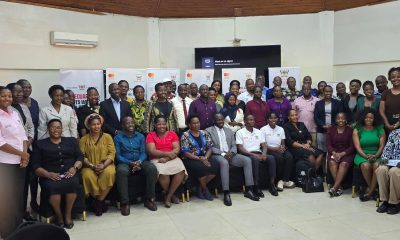
 General1 week ago
General1 week agoMakerere University officially commences implementation of its Mentorship Policy
-
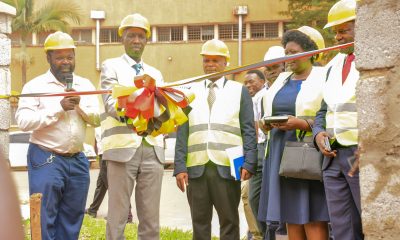
 Education2 weeks ago
Education2 weeks agoReal life project: Makerere University Vice Chancellor hands over constructed Wall Fence to Makerere College School
-
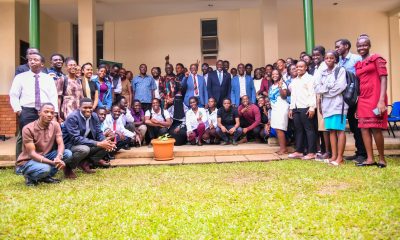
 Agriculture & Environment2 weeks ago
Agriculture & Environment2 weeks agoSFTNB-MIIC Partnership Nurtures Entrepreneurial Learners & Change Agents
-
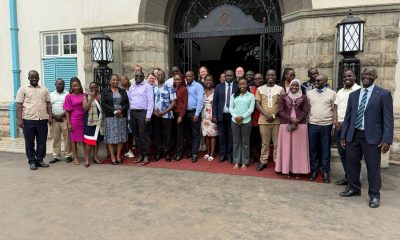
 Agriculture & Environment1 week ago
Agriculture & Environment1 week agoStrengthening Capacity and Shaping Policy: Makerere University Reviews Progress of MERIT and Environmental Risk Research Programs
